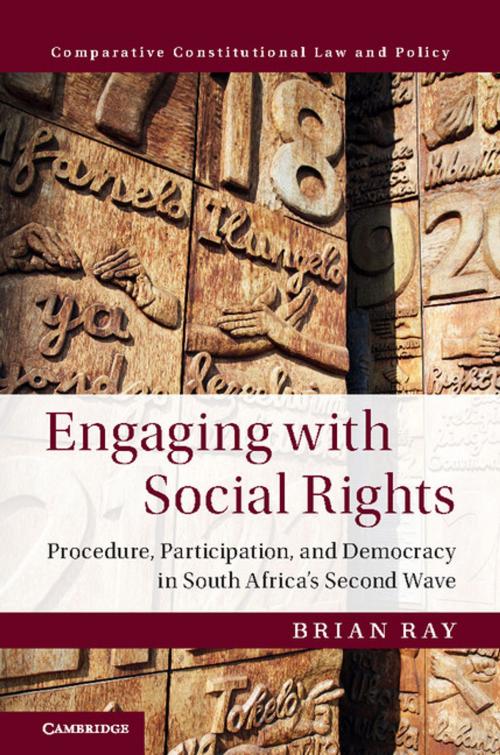Engaging with Social Rights
Procedure, Participation and Democracy in South Africa's Second Wave
Nonfiction, Reference & Language, Law, International, Social & Cultural Studies, Political Science| Author: | Brian Ray | ISBN: | 9781316537541 |
| Publisher: | Cambridge University Press | Publication: | April 21, 2016 |
| Imprint: | Cambridge University Press | Language: | English |
| Author: | Brian Ray |
| ISBN: | 9781316537541 |
| Publisher: | Cambridge University Press |
| Publication: | April 21, 2016 |
| Imprint: | Cambridge University Press |
| Language: | English |
With a new and comprehensive account of the South African Constitutional Court's social rights decisions, Brian Ray argues that the Court's procedural enforcement approach has had significant but underappreciated effects on law and policy, and challenges the view that a stronger substantive standard of review is necessary to realize these rights. Drawing connections between the Court's widely acclaimed early decisions and the more recent second-wave cases, Ray explains that the Court has responded to the democratic legitimacy and institutional competence concerns that consistently constrain it by developing doctrines and remedial techniques that enable activists, civil society and local communities to press directly for rights-protective policies through structured, court-managed engagement processes. Engaging with Social Rights shows how those tools could be developed to make state institutions responsive to the needs of poor communities by giving those communities and their advocates consistent access to policy-making and planning processes.
With a new and comprehensive account of the South African Constitutional Court's social rights decisions, Brian Ray argues that the Court's procedural enforcement approach has had significant but underappreciated effects on law and policy, and challenges the view that a stronger substantive standard of review is necessary to realize these rights. Drawing connections between the Court's widely acclaimed early decisions and the more recent second-wave cases, Ray explains that the Court has responded to the democratic legitimacy and institutional competence concerns that consistently constrain it by developing doctrines and remedial techniques that enable activists, civil society and local communities to press directly for rights-protective policies through structured, court-managed engagement processes. Engaging with Social Rights shows how those tools could be developed to make state institutions responsive to the needs of poor communities by giving those communities and their advocates consistent access to policy-making and planning processes.















